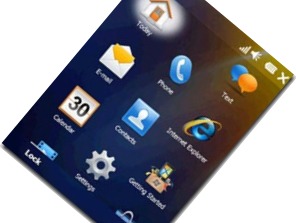Windows Mobile 6.5: The big questions

After the recent Windows Phone / Windows Mobile 6.5 launch last week, there have been some intriguing questions raised about this new direction from Microsoft.
TechRadar had a two interviews with key members of the Windows Mobile team at Microsoft: David Weekes, product manager for Windows Mobile, and Alex Reeve, the head of Microsoft's UK Windows Mobile team, to find out all the answers.
TR: How does Windows Mobile fit into the current market?
AR: It's aimed at people who want smart device for work, then when they're on their way home, they want a great smart device too.
This means Exchange email, company database access, IM through company system, then at home you want Facebook, Windows Live Mail, Gmail instead. It's not about the phone, it's about who wants to use it, most people who I know who are interested in a Windows Phone want it for both work and home.
It's easy to make assumptions about people, and then we don't deliver for actual, real users. They want these services, being able to sync to the cloud if they lose their phone, can then get their stuff back, share photos without a degree in IT, have the same browser favourites on PC and phone. It's not rocket science what we're trying to do.
DW: If look at today's marketplace, Microsoft is traditionally positioned with RIM with BlackBerry in terms of enterprise devices. If you look on the extreme other side, we've got Apple and Android coming in, and Nokia too. Everyone is now trying to move towards the middle, so when you walk into work you only have one device [that is good enough for both work and home].
Sign up for breaking news, reviews, opinion, top tech deals, and more.
That way you can get email, have a good UI experience, and still install some good applications that you discuss with mates in pub. We no longer see it as a consumer or business device, we're terming it as "life maximiser", where people maximise their life in work and maximise their life at home.
We see Windows Mobile 6.5 as a long term strategy, with future releases coming up, so we're not competing against Apple at the moment, because they've got a vertical strategy where they've got one phone, they can write software to exploit all that hardware on that device and they can do some really whizzy stuff which we can't do.
Why aren't you competing with Apple?
DW: We currently work with 55 OEMs who have 155 devices running Windows Mobile, with each different hardware component written by a hardware manufacturer. To write the software to exploit all those manufacturer IDs, well, you couldn't write it, as you'd just end up with a PC.
Our competitor in the market is RIM and Nokia, even though doing some stuff with them [the recent deal to install Microsoft Office on future Nokia handsets].
At the moment, Nokia is losing market share left, right and centre; it's gone from 63% to 46% [worldwide] in just over 18 months. Competitors are stealing a march, and we need to do that with 6.5 too.
Current page: Windows Mobile 6.5: the big questions
Next Page 'WM 6.1 was a successful product for us'
Gareth has been part of the consumer technology world in a career spanning three decades. He started life as a staff writer on the fledgling TechRadar, and has grew with the site (primarily as phones, tablets and wearables editor) until becoming Global Editor in Chief in 2018. Gareth has written over 4,000 articles for TechRadar, has contributed expert insight to a number of other publications, chaired panels on zeitgeist technologies, presented at the Gadget Show Live as well as representing the brand on TV and radio for multiple channels including Sky, BBC, ITV and Al-Jazeera. Passionate about fitness, he can bore anyone rigid about stress management, sleep tracking, heart rate variance as well as bemoaning something about the latest iPhone, Galaxy or OLED TV.